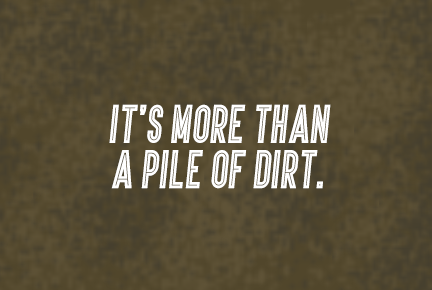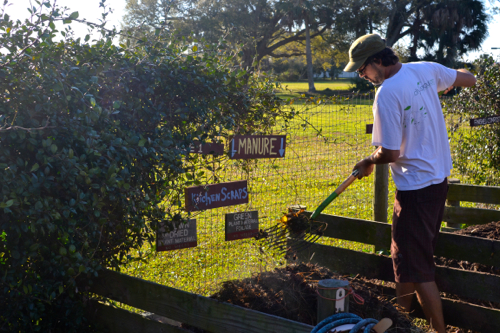By Mallory Hopkins | gargoyle@flagler.edu
Graphics by Heather Seidel
What is it?
Compost is decayed organic material that is used as fertilizer. To create it, people recycle their food scraps. It means less waste going into landfills.
It’s more than a pile of dirt.
A lot of at-home compost operations are in bins or tumblers that are lifted off the ground. This aids in keeping the compost aerated and makes it easier to turn when the time comes.
Compost needs to breathe.
The aeration through the mixture is crucial because it aids in the 60 percent moisture needed to complete the compost formula.
It’s not just a mixture of rotting food.
In order to break down the food in your bin, you also need to include a significant amount of carbon. This could be woodchips, shavings or even leaves. The carbon is what breaks down the nitrogen found in food scraps.
There’s a special formula to composting.
If you are looking to ensure your compost breaks down, you need 30 parts carbon to one part nitrogen. Effective mixtures also need aeration and 60 percent moisture. This balance is key for the microbes in the carbon to break down the nitrogen.
Leaving compost to sit is a big no-no.
The mixture of compost creates a lot of heat. The ideal compost pile gets between 150 to 180 degrees Fahrenheit. If it gets above 180, the carbon will cease to break down the nitrogen, as it is there to do. If this happens, you need to turn the pile so some of the heat can escape. Similarly, the mixture can’t get too cold either: monitoring your compost is key to ensuring a faster breakdown.
Composting can financially benefit you.
The product of compost is a fertilizer with vitamins and nutrients essential to plants. Compost product is a very valuable mixture, and aids the agricultural industry by giving farmers a sustainable product that isn’t expensive to create.
There are foods that you can’t compost.
Fruits, vegetables and most other food scraps are compostable if they contain only food product. However, you cannot compost any sort of meat because of the way it breaks down. More recently, a movement surfaced that, in turn, allowed paper towels, napkins, cups, etc., to be compostable.
Keeping food scraps out of the landfill reduces greenhouse gases.
Landfills are the leading contribution of methane gas, a greenhouse gas (GHG), into the atmosphere. GHG’s are more powerful than carbon dioxide and are actually 23 times more effective at trapping heat in the atmosphere than CO2. The theory is that heat trapped in the atmosphere causes climate change.
You can heat your water with compost.
There’s a relatively new system introduced by innovator Jean Pain called compost power. This involves setting up a compost pile with hundreds of feet of tubing running through it. This tubing allows you to run your water through the pile of compost, thus harnessing it to heat your house water.
















Be the first to comment on "Ten Things You Didn’t Know About Composting"